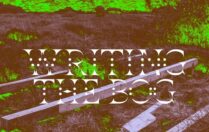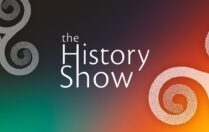Short biographies of some of our 2019 speakers are listed below in alphabetical order.
John Bruton
John Bruton served as Taoiseach from 1994-199. He was deeply involved in the Northern Irish Peace Process, leading to the 1998 Good Friday Agreement. While Taoiseach, he presided over a successful Irish EU Presidency in 1996 and helped finalize the Stability and Growth Pact, which governs the management of the single European currency, the Euro.
Prior to his appointment as Ireland’s prime minister, John was a minister under two taoisigh, Liam Cosgrave and Garret FitzGerald and held a number of the top posts in Irish government, including Minister for Finance and Minister for Industry, Trade, Commerce and Tourism.
Following the end of his spell as Taoiseach, he remained leader of Fine Gael party until 2001, and continued to serve as the delegate for Meath in the Irish lower house for a further three years. Following his retirement from Irish politics, John became EU Ambassador to the United States from 2004 to 2009, speaking before Congress, working alongside two Presidents and addressing the heads of state for Canada, Japan, China and Korea.
Brian Coghlan
Dr Brian Coghlan is a long time academic of the School of Computer Science and Statistics, Trinity College Dublin: https://www.scss.tcd.ie/coghlan/
He is currently active as a curator of the school’s computer science collection, on the Birr I-LOFAR radiotelescope, and on home automation https://www.scss.tcd.ie/coghlan/currwork2.htm
Claire Connolly
Claire Connolly is Professor Modern English at UCC. She is also a Fellow of the Learned Society of Wales and a Member of the Royal Irish Academy. She currently leads the ERDF-funded project Ports, Past and Present. Formerly a professor at Cardiff University, Claire has been a visiting professor in Irish Studies at Boston College (2002-3) and Concordia University, Montreal (Fall 2011). For 2018-19, she was Parnell Fellow in Irish Studies at Magdalene College, Cambridge.
From 2015-18, Claire was Co-Principal Investigator of the interdisciplinary research project Deep Maps: West Cork Coastal Cultures (Irish Research Council New Horizons Award 2015-18) with Dr Rob McAllen (School of Biological, Earth and Environmental Sciences, UCC).
John Dorney
John Dorney is an independent historian and chief editor and writer of the Irish Story website. He was born in Dublin and studied history and politics in University College Dublin, completing a Masters Thesis entitled, Florence MacCarthy and the conquest of Gaelic Munster, 1560-1640.
Intrigued by an Irish language memorial near his home that is dedicated to a republican militant assassinated in the Irish Civil War, he began researching the period surrounding Irish independence and partition in 1916-23. He is particularly interested in the specifics of this often murky period in Dublin. He has authored three e-books in the Story of series that were published 2009-10 (The Story of the Easter Rising, The Story of the Irish War of Independence and The Story of the Irish Civil War). He also participated in the research and writing of Peter Paul Galligan, One of the Most Dangerous men in the Rebel Movement in 2011 and in 2013 authored the short book on the History of Griffith Barracks and Richmond Bridewell, published by Griffith College.
In 2014 his first full length print book, Peace After the Final Battle, the Story of the Irish Revolution was published by New Island Press. In 2017, Dorney’s second book, The Irish Civil War in Dublin, the fight for the Irish capital 1922-1924was published by Merrion Press.
Ruth Dudley Edwards
Ruth Dudley Edwards is a writer and historian. She was born and brought up in Dublin, was a student at University College Dublin, a post- graduate at Cambridge University and now lives in London. A historian and prize-winning biographer her recent non-fiction books include True Brits: inside the Foreign Office, The Pursuit of Reason: The Economist 1843-1993, The Faithful Tribe: an intimate portrait of the loyal institutions (shortlisted for the Channel 4 political book prize) and Aftermath: the Omagh bombings and the families pursuit of justice. Her most recent book is The Seven — The Lives and Legacies of the Founding Fathers of the Irish Republic, published in 2016. Ruth has written for almost every national newspaper in the Republic of Ireland and the United Kingdom and appears frequently on radio and television in both countries, and on the BBC World Service.
Jim Herlihy
Jim Herlihy, a retired member of the Garda Siochana and a co-founder of the Garda Historical Society, is the author of three books on the Royal Irish Constabulary (RIC), two on the Dublin Metropolitan Police (DMP) and one on the Irish Revenue Police (1832-1857). He is currently a senior researcher with FINDERS International, a committee member of the HARP Society whose primary aim is to secure a memorial to all RIC (640) & DMP (30) men killed in the line of duty.
John Horne
Professor John Horne is an historian, emeritus Fellow and former Professor of Modern European History at Trinity College Dublin and Member of the Royal Irish Academy. He is a board member of the Research Centre at the Historial de la Grande Guerre, Péronne (France). In 2016-17 he was Leverhulme Visiting Professor at Oxford University. He is the author and editor of a number of books and over a hundred chapters and articles, many relating to the Great War. Among his latest publications are (ed.) A Companion to World War One (Oxford, Blackwell-Wiley, 2010); (ed.) Vers la guerre totale: le tournant de 1914-1915 (Paris, Tallandier, 2010); and with Robert Gerwarth (ed.) War in Peace: Paramilitary Violence in Europe after the Great War (Oxford University Press, 2012). He is working on a history of the French experiences of the First World War. Last year, John was the academic advisor to the Musée de l’Armée in Paris on their exhibition to close the centenary of the Great War in the Hôtel des Invalides: “À l’est la guerre sans fin: 1918-1921” (In the East, the War without End: 1918-1923).
Liam Kennedy
Liam Kennedy was born in County Tipperary under the star sign of Leo (or was it Taurus?), well before the era of Radio Telefis Eireann and the Friesian cow. His undergraduate degree was in food science but he experienced a later Pauline conversion to history. His formative intellectual influences included Raymond Crotty (Irish agricultural production), Sir John Hicks (A theory of economic history), Edna O’Brien (The country girls) and the Tipperary Star. He is a member of the Royal Irish Academy.
His most recent book is a collection of essays: Unhappy the Land: The Most Oppressed People Ever, the Irish? (Dublin, 2016)
With a view to enhancing his popularity still further, he is in the process of publishing a book on Northern Ireland entitled Who Was Responsible for the ‘Troubles’, 1966-1998?
Sylvie Kleinman
Dr Sylvie Kleinman studied History in Paris and Dublin, and initially focused on how the United Irishmen communicated across language barriers when negotiating with France, c 1792-1803. She has taught courses on French and Irish history, and held an IRC postdoc grant in Trinity College, examining Theobald Wolfe Tone’s travels in Europe as part of his military career. In 2016, she published a Sorbonne conference paper on the rhetoric of Irish sovereignty within international republicanism which Tone projected to France in 1796. That article will underpin her West Cork talk.
Ida Milne
Dr Ida Milne is a social historian whose research looks at the effects of disease in Irish and international contexts. She is currently European History Lecturer at Carlow College. From 2014-18 she held a prestigious Irish Research Council Marie Curie fellowship at Maynooth University. She is vice chair of the Oral History Network of Ireland, and a member of the Royal Irish Academy historical sciences committee. Her book Stacking the coffins Influenza war and revolution in Ireland, 1918-19, was published in 2018 and a collection of essays which she edited with Ian D’Alton, Protestant and Irish: The minority’s Search for place in an independent Ireland was published earlier this year.
Dan Mulhall
Dan Mulhall was born in Waterford and educated at UCC, entering the Department of Foreign Affairs in 1978. He worked in Irish embassies in India and Austria as part of Ireland’s representation to the European Union in Brussels. He was also closely associated with the Dublin government’s approach to Northern Ireland policies. In 2001 he became Ireland’s Ambassador to Malaysia and in 2009, he became the Irish Ambassador in Berlin. In 2013, he was appointed Ambassador of Ireland to Great Britain and in 2017 became the Irish Republic’s representative to the United States.
Thomas O’Connor
Thomas O’Connor hold his doctorate from the Sorbonne and is professor in history at National University of Ireland Maynooth. He is director of the university’s Arts and Humanities Research Institute, editor of the sources journal Archivium Hibernicum and member of the Irish Manuscripts Commission. He sits on the Fondation irlandaise. His research interests include Irish migration to early modern Europe and his most recent book explored Irish agents and victims of the Spanish Inquisition.
Eunan O’Halpin
Professor Eunan O’Halpin is Professor of Contemporary Irish History at Trinity College Dublin. He has published widely on aspects of twentieth century Irish and British history. Amongst relevant works are The Decline of the Union: British government in Ireland 1892-1920 (Dublin, 1987), Defending Ireland: the Irish state and its enemies since 1922 (Oxford, 1999), and Spying on Ireland: British intelligence and Irish neutrality during the Second World War (Oxford, 2008). A founding co-editor of the series Documents on Irish Foreign Policy, he is currently preparing a study of Afghanistan and the belligerents during the Second World War. He has strong family links to the Irish revolution, in which his Halfpenny, Moloney and Barry grandparents had senior roles and in which two great uncles were killed.
Miriam Ui Dhonnabhain
Miriam Uí Dhonnabháin is an Irish language scholar and singer with a particular interest in the amhrán tradition and the manuscript culture of the period 1650-1895. She was awarded an MA for her work in cataloguing the 1857 Song MS of the Rev. James Goodman. She has lectured at UCC on 18th and 19th century Irish manuscripts and on the development of the Caighdeán Oifigiúil. She was the 2014 Dr. Nicholas O’Donnell Fellow at Newman College, University of Melbourne. She has published on the history of the O’Donovan clan, on women in the later Gaelic manuscript tradition, on the east Cork scribe and author Dáibhí de Barra and on the work of James Goodman. Her most recent work, on the history and development of agallaimh (dialogue songs), is due to be published next year. She is working on the Goodman songs for her Ph.D and performs them whenever possible. Her aim is to return the songs to the traditional repertoire. She is a full time secondary teacher of Irish, English and Heritage.
Brian Walker
Brian M. Walker is Professor Emeritus of Irish Studies at Queen’s University Belfast. Previous books include ‘A political history of the two Irelands: from partition to peace’ (2012). His new book, ‘Irish history matters: politics, commemorations and politics’, was published in June by History Press Ireland. He is a native of Belfast and a graduate of Trinity College Dublin. He is from a clerical family, his father was rector of Knockbreda parish in south Belfast.



